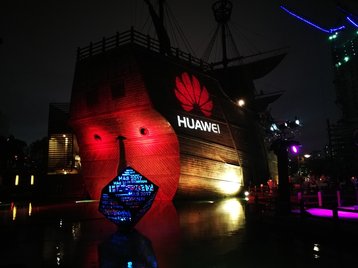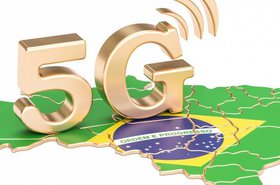The United States Department of Justice has charged Huawei with conspiracy to violate the Racketeer Influenced and Corrupt Organizations Act (RICO).
The government alleges the world's largest telecommunications company deliberately stole trade secrets from several companies, including six US technology firms. It also alleges the Chinese business broke trade sanctions to provide surveillance equipment and services to Iran and North Korea.
Another day, another Huawei allegation
Brian A. Benczkowski, Assistant Attorney General of the Justice Department’s Criminal Division; John C. Demers, Assistant Attorney General of the Justice Department’s National Security Division; Richard P. Donoghue, US Attorney for the Eastern District of New York and Christopher A. Wray, Director, FBI, announced the charges.
They allege the IP theft was a decades-long scheme. "The misappropriated intellectual property included trade secret information and copyrighted works, such as source code and user manuals for internet routers, antenna technology and robot testing technology," the DOJ said.
"Huawei, Huawei USA and Futurewei agreed to reinvest the proceeds of this alleged racketeering activity in Huawei’s worldwide business, including in the United States."
The companies allegedly stolen from were not detailed, but are thought to include Cisco Systems, Motorola Solutions, Fujitsu, Quintel Technology, T-Mobile and CNEX Labs, the New York Times reports.
"The means and methods of the alleged misappropriation included entering into confidentiality agreements with the owners of the intellectual property and then violating the terms of the agreements by misappropriating the intellectual property for the defendants’ own commercial use, recruiting employees of other companies and directing them to misappropriate their former employers’ intellectual property, and using proxies such as professors working at research institutions to obtain and provide the technology to the defendants," the DOJ said.
"As part of the scheme, Huawei allegedly launched a policy instituting a bonus program to reward employees who obtained confidential information from competitors. The policy made clear that employees who provided valuable information were to be financially rewarded."
The indictment builds upon previous allegations that the company violated trade sanctions against Iran, using a purported subsidiary, Skycom. Now, the DoJ claims that Huawei lied about whether Skycom was a subsidiary, and adds that Huawei assisted the Government of Iran in performing domestic surveillance, including during the demonstrations in Tehran in 2009.
The DOJ claims Huawei provided similar support to the sanctioned nation of North Korea.
"This new indictment is part of the Justice Department’s attempt to irrevocably damage Huawei’s reputation and its business for reasons related to competition rather than law enforcement," a Huawei spokesperson told DCD.
"These new charges are without merit and are based largely on recycled civil disputes from [the] last 20 years that have been previously settled, litigated and in some cases, rejected by federal judges and juries. The government will not prevail on its charges, which we will prove to be both unfounded and unfair."
Citing the alleged breaking of Iran sanctions, the US government last May put Huawei on the Entity List, banning American companies from doing business with the firm without specific approval. But the actual enforcement of the ban has been repeatedly delayed, allowing business to continue.
This week, on the same day the DOJ leveled new charges, the Commerce Department again granted another reprieve, this time lasting 45 days.
"The 45-day extension is necessary to allow existing telecommunication providers - particularly those in rural US communities - the ability to continue to temporarily and securely operate existing networks while they identify alternatives to Huawei for future operation," the Commerce Department said.
Huawei responded to the extension by saying that it "won't have a substantial impact on Huawei's business either way. This decision does not change the fact that Huawei continues to be treated unfairly either."
A spokesperson added: "We have long held that the decision by the US Department of Commerce to add Huawei to the Entity List has caused more harm to the US than to Huawei. This has done significant economic harm to the American companies with which Huawei does business, and has already disrupted collaboration and undermined the mutual trust on which the global supply chain depends. We call on the US government to put an end to this unjust treatment and remove Huawei from the Entity List."
Separately, this week the Wall Street Journal reported US government officials' claims that Huawei can covertly access mobile-phone networks around the world through back doors designed for use by law enforcement. “We have evidence that Huawei has the capability secretly to access sensitive and personal information in systems it maintains and sells around the world,” national security adviser Robert O’Brien told the publication.
Huawei said that it “has never and will never do anything that would compromise or endanger the security of networks and data of its clients. We emphatically reject these latest allegations. Again, groundless accusations are being repeated without providing any kind of concrete evidence.”




